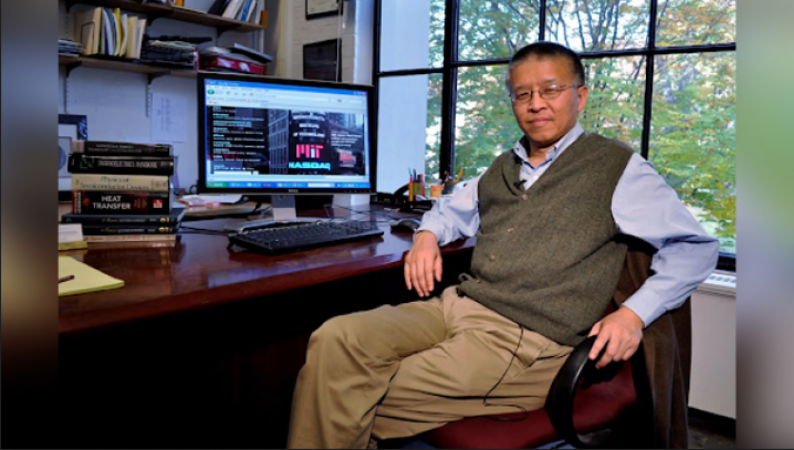
USA: Gang Chen, an MIT professor who was born in China, has led a team to what they claim is the best semiconductor ever found. Gang Chen's name was cleared earlier this year following a high-profile investigation into his alleged China ties.
Chen and colleagues claimed in a paper that was just last month published in the journal Science that the most widely used semiconductor, silicon, could not only conduct heat, but could do so 10 times better than cubic boron arsenide.
The new material is a promising candidate for next-generation electronics, according to the paper by Chen and co-authors from MIT, the University of Houston, and other US institutions. This is because of the new material's extraordinary thermal conductivity.
Additionally, it outperforms silicon by three times when it comes to electron hole mobility, a crucial component of conductivity.
He stated this in a news release posted on the website of the MIT Department of Mechanical Engineering, "If you build a device, you want to have a material where both electrons and [electron] holes travel with less resistance."
Chen, who specialises in heat transfer, energy conversion, and nanotechnology, predicted the peculiar electronic characteristics of cubic boron arsenide theoretically back in 2018.
Using samples created by a team from the University of Houston headed by another professor with Chinese ancestry, Ren Zhifeng, Chen's lab was able to conduct experiments and demonstrate their hypothesis.
Chen stated that even though the substance seems to be the ideal semiconductor, more research needs to be done on its other characteristics, such as its long-term stability. According to the press release, they also want to discover how to produce and purify it so that it could eventually partially replace the widely used silicon in industrial applications.
Chen is the director of the Pappalardo Micro/Nano Engineering Laboratories at MIT and the Carl Richard Soderberg Professor of Power Engineering. He is also a Thomson Reuters Highly Cited Researcher and a Fellow of the American Academy of Arts and Sciences.
Chen received a fellowship from the K.C. Wong Education Foundation in Hong Kong to pursue his doctorate at the University of California Berkeley in the 1990s after earning his master's degree and briefly teaching at the Huazhong Institute of Technology, now Huazhong University of Science and Technology, in central China's Hubei province.
Chen was held at Boston Logan International Airport in January 2020. A year later, Cambridge-based Federal Bureau of Investigation agents executed a home raid and detained him on suspicion of lying about his ties to Chinese organisations when he applied for federal research grants.
Due to a lack of evidence, the US government dropped all charges against him in January.
Chen was one of dozens of researchers who were being looked into as part of the US Justice Department's China Initiative, which was established in November 2018 to combat espionage and intellectual property theft.
Five days after his case was dismissed, Chen wrote in an editorial in Science, "I grew up in China and found my American dream at MIT... In January 2020, the dream turned into a nightmare."
"I was finally cleared of all charges earlier this year. I am painfully aware that I am the luckiest of the unfortunate, though.
The day after the charges were dropped, Chen was reportedly back in his lab. Since then, he has co-authored and published papers in renowned journals like Physical Review B, Science, Nature Communications, and Nature.
Chinese-born scientists, including chemical engineer Franklin Feng Tao from the University of Kansas, Lawrence, and applied mathematician Xiao Mingqing from Southern Illinois University, Carbondale, have stood trial and been found guilty for failing to report ties with the country even after the widely criticised China Initiative ended in February.
Apple warns vendors not to use Taiwanese labels to avoid "trade barriers"
China's film authority uses discount coupons to entice moviegoers and boost the stagnant industry